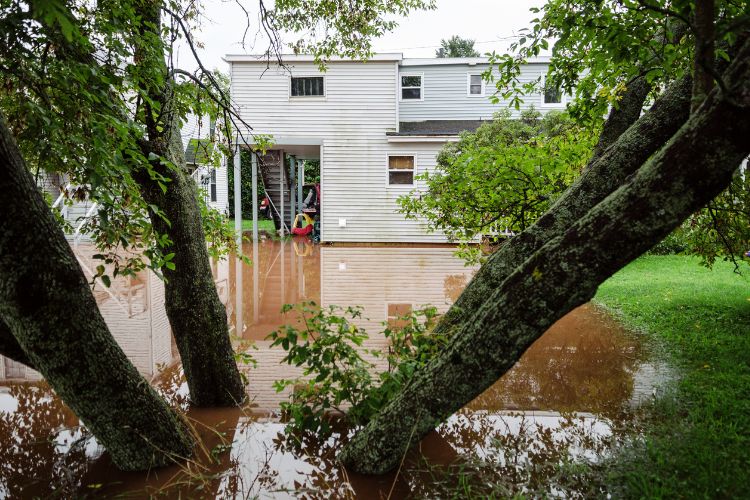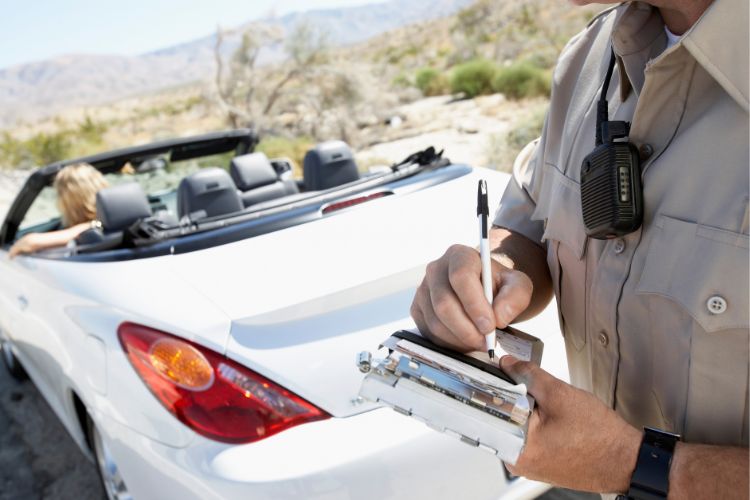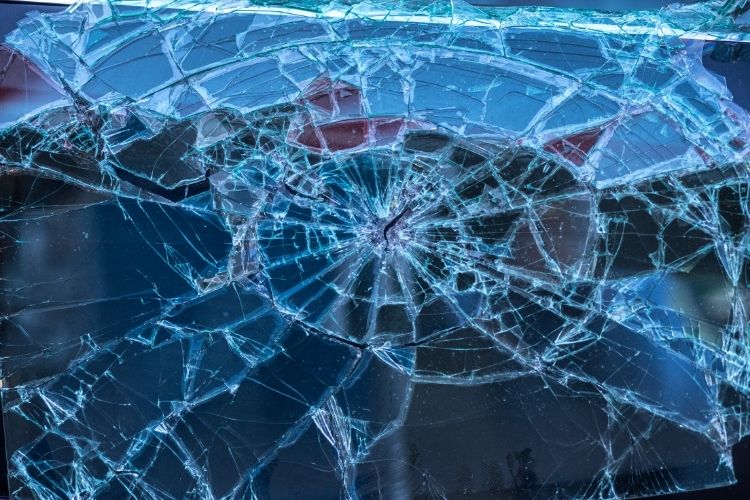
by Gordon Buchanan | Sep 15, 2022 | Uncategorized
Many people worry about the insurance cost of teen drivers, but not the dangers of not adding a child driver to your insurance. It’s understandable since teenage drivers have a higher risk of:
- Speeding
- Driving distracted
- Not using seatbelts
- Alcohol or substance use
- Vehicle crashes
With the high cost of teenager car insurance, it might be tempting to “hide” them from the insurer. However, avoiding paying for a teen driver’s insurance could hurt you in the long run.
Your Car Insurance Company Could Deny Your Claim
Not adding a driver to the policy could invalidate the contract’s provisions.
Filing a claim after an uninsured young driver has had an accident could result in a denial if you did not add them to your policy.
Not only will you have paid an insurance premium, but now you’ll be footing the bill to repair the car and pay for any medical bills out of pocket.
You Might Lose Discounts
A car insurance company that determines an uninsured child was driving the car could disqualify you from discounts you had previously:
- Safe driver discount
- Accident free or speeding ticket free discount
- No claims history discount
Your insurance record could be flagged as a high-risk driver for allowing a teen driver to operate a vehicle when they should have been covered.
You Might Have to Pay Back Payments
Suppose you allowed a teen driver to begin using your vehicle without adding them to your policy. In that case, the insurance company might require you to pay up.
A child who received their license two months ago should be insured. However, by not adding them to the policy, the insurer could require you to pay back premiums to cover the child for the past two months.
In that situation, the insurance company will likely require back payments in lump sums to keep your coverage in good order.
You Could Risk Losing Your Auto Insurance Policy
On the other hand, if you refuse to pay any back payments due or otherwise violate the terms of the policy, the insurer might be within their rights to cancel your policy. Similarly, they could notify you that they will not renew it at the end of the term.
Losing your auto insurance policy for not covering a young driver puts you at risk of not being able to get another car insurance coverage. A new insurer that sees another insurance company dropping your coverage is less likely to offer you a new policy.
How to Put Your Teenager on Insurance
Fortunately, adding a young driver to your policy may qualify you for new discounts and savings you weren’t eligible for previously:
- Good student
- Distant student away at college
- Safe driving course
- Low mileage
- Safety features on teen’s car
- Telematics that monitor the vehicle’s speed, distance traveled, and brake pressure.
Winstead Insurance has helped thousands of customers add their teenage drivers to their policies. Let us help you find the lowest rate so you get peace of mind knowing you’re covered.
Call 410.398.6700 to get a quote today.

by Gordon Buchanan | Aug 12, 2022 | Uncategorized
Flood insurance is usually the last thing most people think about when they buy a home. But, yet, it’s critical coverage depending on where you live. Most people are drawn to live near water. It’s beautiful and peaceful, and it sustains life. However, flooding causes billions of dollars in damage every year. Some lenders require you to buy flood insurance. However, even if you own your home without debt, it may be wise to consider it.
Does homeowners insurance cover floods?
Many people do not know what their homeowners insurance covers but usually assume it covers every peril. Typically, homeowners insurance covers these perils:
- Smoke or fire
- Wind (high winds and tornadoes; not windstorms like hurricanes)
- Explosions
- Lightning
- Hail
- Snow or ice volume
- Falling trees or objects
- Faulty appliances or pipes
- Civil disturbances or riots
- Vandalism
- Theft
Unfortunately, thousands of people find out the hard way that their homeowners policy does not cover floods when they receive a claim denial.
How does flood insurance work?
Flood insurance protects your home’s structure and its contents. For example, the policy would cover if a flood ruined your electrical and plumbing systems, HVAC unit, cabinets, furniture, and other personal belongings. Flood insurance is unique because FEMA, a government agency, administers the National Flood Insurance Program. They maintain flood risk maps that identify areas around the country at the highest risk for flood damage.
Because it’s highly regulated, flood insurance rates are identical regardless of where you get it.
How to determine if you need flood insurance
Some property owners, such as those in high-risk flooding areas, may be required to buy flood insurance. Specifically, suppose you received federal disaster assistance in the past. In that case, the government requires you to have a flood insurance policy to stay eligible for financial help in the future. Additionally, if you have a government-backed loan, the terms will require you to have flood insurance. On the other hand, private mortgage lenders choose whether to require buying a flood insurance policy.
How to buy flood insurance
The NFIP cooperates with over 50 insurance providers and thousands of independent insurance agents around the country to provide matching NFIP rates and coverage. Winstead Insurance in Elkton, MD can help you get a flood insurance policy to cover your house.
What other information should I know about flood insurance?
Flood insurance deductibles can range from $1,000 to $10,000, and covers a maximum of $250,000 building and $100,000 contents damage. You can also buy flood insurance to cover your personal belongings if you’re renting. Also, flood insurance pays claims regardless of whether a disaster is declared. If there is a disaster, you can still receive FEMA assistance as a loan or grant in addition to a flood insurance claim.
Don’t let the risk of flood stress you. Winstead Insurance will help you find affordable flood insurance rates and answer any questions about how coverage works. Call our team at 410.398.6700 or text 410.398.6700 today.

by Gordon Buchanan | Aug 12, 2022 | Uncategorized
Most parents of teen drivers wonder if their car insurance premiums will go up, and the short answer is yes. Not only will you have to worry about your kid driving safely and learning how to be defensive, but you will also worry about what happens if they’re involved in an accident. Setting up car insurance is necessary because not adding a driver to your insurance is a sure way to face denied claims.
What is the cost of adding kids to your car insurance?
Adding an inexperienced teen driver to your auto insurance will increase your premium regardless of where you live.
The cost to add a young driver to your car insurance policy depends on a few things: your resident state, the insurance company, the covered cars, and whether you qualify for other discounts. For example, the average cost per year to add a student driver is $1,100 with Erie Insurance and $1,221 with Nationwide.
Fortunately, insurance gets cheaper each year that the teen driver gains experience and keeps a clean driving record. At first, you’ll feel sticker shock, but it becomes more manageable after a couple of years. Also, you can request quotes from multiple insurance companies to compare rates.
Benefits of naming your child on your auto insurance policy
It can be hard to imagine the benefits of adding a teen driver to your car insurance, but there are.
First, you may qualify for extra discounts like a good student, college student (not at home using the car), and defensive driving course.
Second, having all drivers on one policy makes it easier to manage insurance and finances. Putting your child on a separate policy can be more expensive and complicated. Finally, suppose your teen is involved in an accident in your car. Consequently, the insurance company may deny a claim if your child is not named on the policy.
Most of all, it’s an opportunity to teach your child a lifelong lesson about how to buy, amend, and use car insurance. Eventually, they will have to get an individual policy and should be prepared on how to shop for it.
When should you add your child to car insurance?
The best time to add your child to your auto insurance policy is when they receive their driver’s license. But, first, check with your state DMV and insurance agent to find out if you are required to add them when they receive their learner’s permit.
Before your teen begins learning to drive, review your policy and ensure your coverage reflects your needs. For example, suppose you haven’t reviewed your coverage limits in five or ten years, but your assets have grown. Then, it’s worth checking if your policy’s limits sufficiently protect you from loss.
At Winstead Insurance, we are committed to helping you get the right protection at the right price. Regardless of your driving history or risk factors, we work hard to find insurance that meets your needs.
Call us today at 410.398.6700 (text 410.205.9355) for a no-obligation quote.

by Gordon Buchanan | Jun 22, 2022 | Uncategorized
It’s hard to describe the deep feelings of violation that are felt when your home is robbed. This is your chosen safe place, a sanctuary away from the chaotic world around you. It is where your family can rest and be at peace. It is where all of your belongings reside, including tokens from memories and people that may no longer be with us. And to see it destroyed, pilfered, and picked through is heartbreaking. One of the first calls that you should make, after that of the police, is with your homeowners insurance company. After all, they promised that if something like this would happen, they would put it right, as much as possible. And while that is accurate, there is a chance that your premiums could increase. To understand why, it is important to look at what determines homeowners premiums in the first place, and why certain elements result in higher premiums. But we should also look at things that you can do to safeguard against another break-in, protect important or expensive items, and potentially result in a lowered rate in the future.
How do insurance companies decide homeowners insurance rates?
There are a number of factors that go into the decision making concerning the costs of homeowners insurance. All of these factors are determining levels of risk. The higher the risk of a potential loss or claim, the higher the premiums or rates. These factors that they take into account can be broken up into a few categories:
- The People: Your claims history (with other insurance companies also), credit history, and even what breed of dog you have can affect your risk score.
- The Property: The condition of your home (like fixer-uppers vs. well-maintained), construction of your home (brick vs. stucco vs. frame), what other structures you have on the property (pools or sheds), and the age of your home are all considered.
- The Ecology: They mostly look at fire department ratings and whether you live in an area that is prone to tornadoes, hurricanes, fires, or floods.
- The Environment: This is the factor that will relate to the current issue of robberies. Insurance companies are very meticulous and detailed when they identify crime trends in different zip codes, whether the property is in a rural, suburban, commercial, or urban neighborhood, and what the claim history is for that area. Your initial rates may have been higher because of the neighborhood you moved into, and they will likely get higher with every incident of theft, robbery, or even general crime that occurs.
What can I do?
Knowing that, on top of your house being robbed and your possessions being taken, your rates may also go up, can be frustrating. But there are a number of steps that you can take. And good insurance companies will take into account these steps when looking at how much of a risk you are. If you prove that you are taking measures to decrease the likelihood of another incident, they can often respond with enough confidence to keep the changes to a minimum. So here are a few things you can do:
- Beef up security: Although most of these ideas will cost your pocketbook a little now, they will definitely pay off later.
-
- Cameras: Small cameras can be pretty inexpensive these days and even a simple doorbell camera has revolutionized the police’s ability to catch perpetrators of vandalism and theft.
- Security system: Often the sight of the sign in the front yard is enough to deter a would-be robber. The fear of being caught can be powerful.
- Exterior lights and motion sensor lights: No thief wants to be seen and motion sensor lights can be especially helpful because many thieves will assume you turned it on from inside and will leave.
- Dogs: This is a tried-and-true deterrent to theft, but be careful which breeds you buy because some home insurance policies consider certain breeds to increase risk, not decrease it. Be sure and check with your insurance agent before jumping in.
- Fences and Gates: Again, check with your insurance company first. Some fencing can increase the potential risk according to insurance companies, but all fences and gates provide more safety.
- Creating a neighborhood watch: This is a good idea no matter what. But helping to start or joining a neighborhood watch is typically low involvement, but high yield. Together we can all make our neighborhoods safer.
It is important to remember that insurance companies are on your side. They exist to help restore you to as close to normal as they can after a disaster, whether it be water damage from a pipe bursting, roof damage from hail, or loss of your possessions from theft or vandalism. The experts at Winstead Insurance understand this and will work hard to get you the most affordable rates possible, no matter what risk factors you have present. Call them at 410.398.6700 (text at 410.205.9355) for a comprehensive quote.

by Gordon Buchanan | Jun 22, 2022 | Uncategorized
You’re cruising along on a sunny day enjoying a drive and then you see the dreaded lights. You didn’t even realize that you were speeding. After the interaction with the officer, and the ticket being issued, it suddenly occurs to you, this could affect my insurance rates. For most of us, an increase in rates gets our heart pumping higher too. And for most people, a ticket can increase rates because an insurance company sees you as a higher risk. In fact, according to Forbes Advisor, drivers in the United States who receive a speeding ticket have their rates go up by 24%, or almost $380 a year, which can put a serious dent in any wallet. But there are steps that you can take to recover from this, and even companies that you can go with that will understand when there is an unfortunate aberration from your typical safe driving. So, you got a ticket. Now what?
What your insurance company is thinking about:
An insurance company makes all its decisions based on the levels of risk of the people it represents. While it would be noble to cover anyone, despite their previous records, anyone who is at a high risk of making a claim against their insurance or getting into an accident, is going to cost more money to the company. Therefore higher risk customers are going to be charged higher premiums, and the highest risk customers may not be provided insurance from most companies at all. Another reason why it’s important to drive safely.
Here are the basic questions that an insurance company is going to ask itself if you get a speeding ticket.
- Was this your first ticket? – A first time offense will not be taken nearly as seriously as a pattern of behavior.
- How many miles per hour were you going over the speed limit? – The higher the recklessness, the higher the risk to the insurance company.
- What is your prior driving record? – Keep in mind that parking tickets won’t count against you, unless you don’t pay them. They’re going to be looking for at-fault accidents, and moving violations in your past.
- How long has it been since your last moving violation? – Again, insurance companies are mostly concerned about a pattern of behavior, and a short time gap between tickets is seen as a potential problem.
What can you do after you’ve already gotten a ticket?
Most of us assume that once the ticket has been issued, your fate is sealed when it comes to a higher rate. While you can’t change your insurance company’s reactions concerning a ticket, you can do two big things to prevent this from becoming a pattern.
- Take a few classes: Most states offer accident prevention or defensive driving courses that can reduce points or even lead to lower premiums. Especially if you have just received a ticket, these efforts will look really good on your record and insurance companies love to see the effort. In addition, quite a few of these classes are entirely online. Just make sure that they are certified or approved to get those points shaved off, and even ask your insurance company if they would consider not increasing your rates if you agreed to take one that they recommend.
- Drive safely: It cannot be stated enough that a clean and clear driving record after a ticket is the best way to keep your rates low. Most insurance companies offer incentives to good drivers and ways to track your safe driving. Ask your insurance company about their programs and any other ways that you can prove on an ongoing basis that you are not a high risk customer.
We all make the occasional driving error and as frustrating as the fallout can be, picking the right insurance company can make all the difference. Winstead Insurance in Elkton, MD believes strongly that the occasional mistake shouldn’t have a terrifying impact on your ability to stay affordably insured, and that you shouldn’t have to cut coverage to cut costs. Winstead Insurance has a Minor Violation Forgiveness Policy which states that one minor moving violation won’t increase your rates. This counts for each individual policy, and will renew every three years, providing there are no more hiccups. If only other mistakes in life could be forgiven so easily. Contact Winstead Insurance today at 410.398.6700 (or text at 410.205.9355) for rate quotes and more information.

by Gordon Buchanan | Jun 3, 2022 | Uncategorized
Crack! We’ve all had it happen. Minding our own business, driving safely down a highway or street and a rock flies into our windshield, the telltale spiderweb-style damage staring at us from the formerly pristine glass. As startling as it can be the moment it happens, the torrent of questions we ask ourselves about what to do next can be even more overwhelming. Does this crack make it unsafe for me to drive? Will I need to replace the windshield or can I get it fixed? How much will it cost? And most importantly, will my insurance cover this windshield damage? For peace of mind, let’s look at each of those questions one by one.
Is driving with a cracked windshield unsafe?
Although a small crack is not inherently dangerous, it is considered unsafe for a few reasons. First, even a small crack can grow quickly and threaten the effectiveness of the windshield itself. If a second rock were to hit the windshield or an accident were to occur, the natural protections that would be in place by a fully intact windshield would be compromised, and the likelihood of more serious injury would be increased. For the safety of future occupants in potential situations, it should be repaired or replaced. Secondly, as a corollary to that safety concern, a crack in a windshield also can cause visibility and distractibility issues that could actually lend themselves to causing further incidents or accidents. In this way, sometimes it’s not the size of the crack that matters, it’s the fact that it exists at all that can compromise the integrity of the windshield and the ability of the driver.
Will I need to replace the windshield or can I get it fixed?
Basic rule of thumb when examining a cracked windshield and determining whether it can be repaired or replaced, is how long the crack is. In most situations, if the crack is under 3 inches, it can be repaired and a full replacement isn’t necessary. Many shops use the dollar bill test: if it can be fully covered up by a dollar bill, it can be repaired. This makes it doubly important that the crack be addressed immediately, because it can grow very quickly and lead to requiring a full replacement.
How much will it cost to replace my windshield?
Without insurance, the average cost to repair a windshield can be between $20 – $75 but can get as high as $350 depending on the make and model of the car. But this leads to the next obvious question.
Will my insurance cover windshield crack repair?
The short answer is, yes. But there are many involved elements here, including the potential for requiring a deductible, and how to proceed with a claim. First things first, it is in an insurance company’s best interest to get a windshield repaired. For the same reasons that a customer is concerned for their safety when driving with a crack, the insurance company is concerned for any potential for further injury and damage and this risk is decreased if the windshield is repaired quickly and effectively. In addition, most policies also cover windshield replacement which can cost the company more, so it would make sense that they would be interested in taking the easier, lower cost option of fixing it as soon as possible. The next question a customer immediately is concerned with is a deductible. Nearly all policies have deductibles which can help to lower premiums, but if the costs are so low, then would it be logical to make a claim for windshield repair if it would be under the deductible amount anyways. For this reason, most insurance companies do not apply the deductible to glass damage, and simply cover the costs to get the repair completed. This benefits both the customer and the insurance company in getting the claim handled and the glass fixed. Fortunately, most insurance companies have a separate department that handles all glass related claims, to separate them from other kinds of claims that may require the application of the deductible or liability concerns.
As scary as a sudden rock in the windshield can be, the resulting crack doesn’t have to feel so daunting. Experienced insurance professionals, like those at Winstead Insurance, have handled situations like this for years and can make the process simple and smooth for any concerned customer. When purchasing your car insurance, be sure to consult them for competitive rates from multiple companies that will include windshield repair and replacement costs, to put your mind at ease, just in case an errant rock decides to try and ruin your day. With Winstead backing you up, your insurance company will ensure a quick and easy resolution. Call Winstead Insurance for quotes at 410.398.6700.








Recent Comments